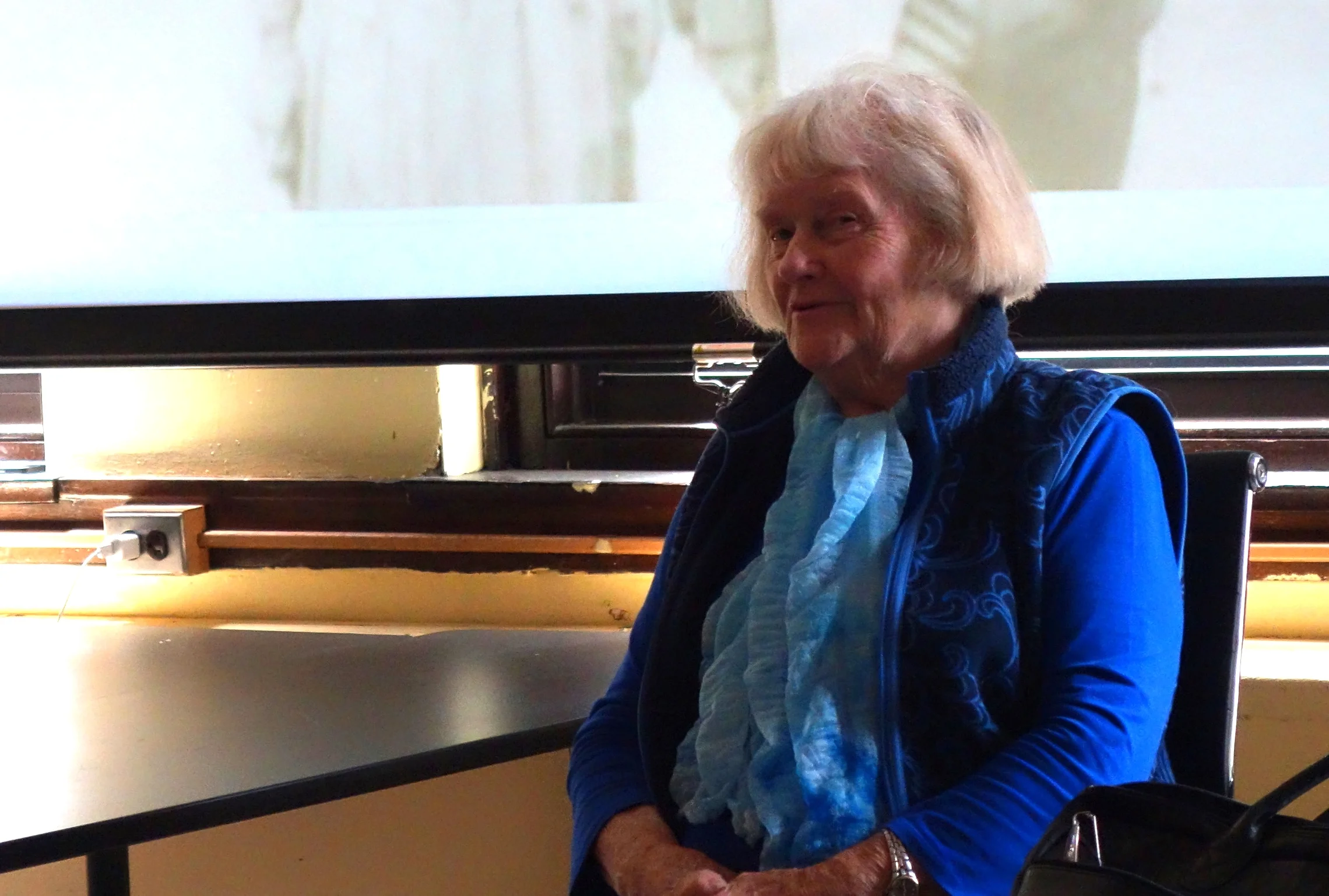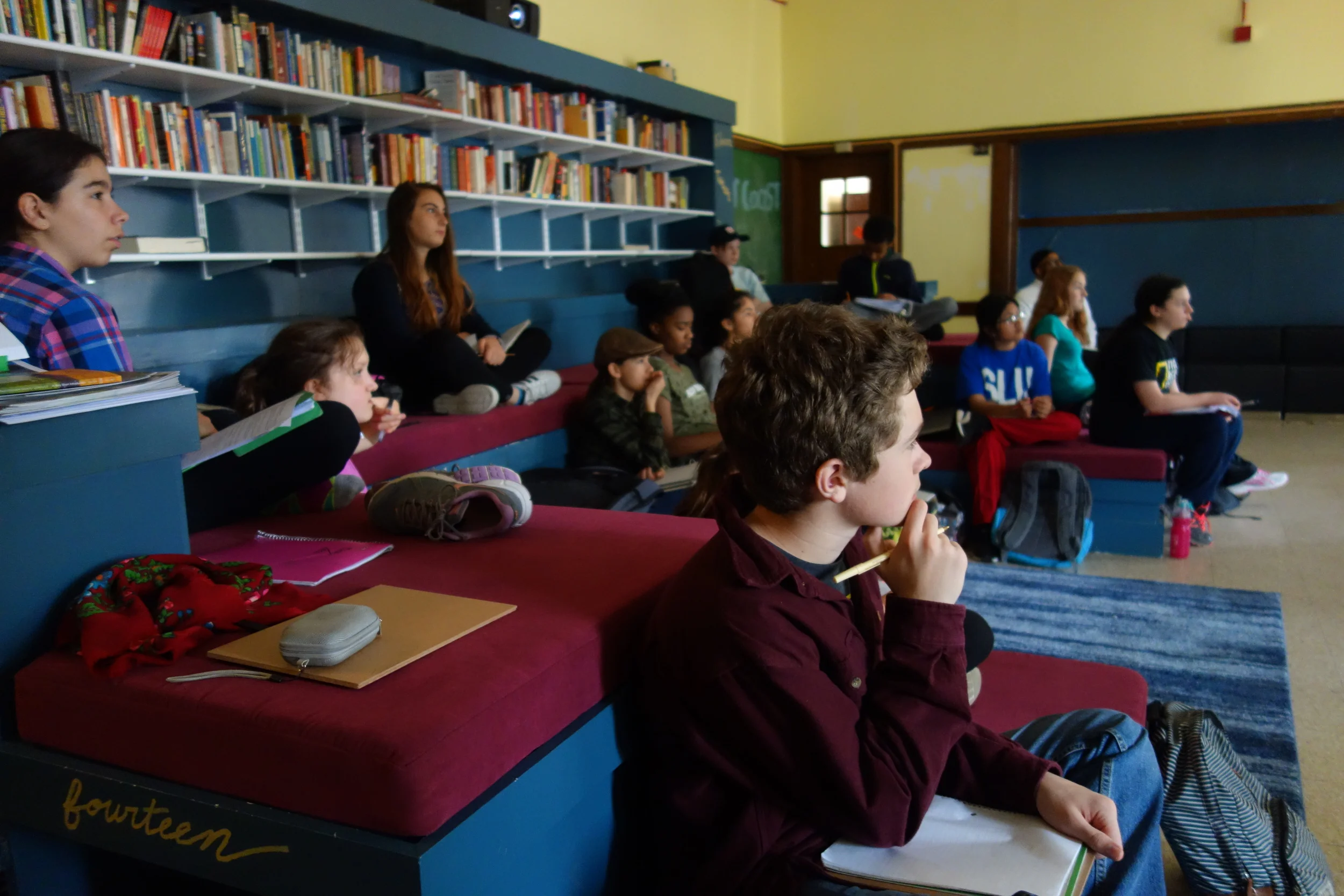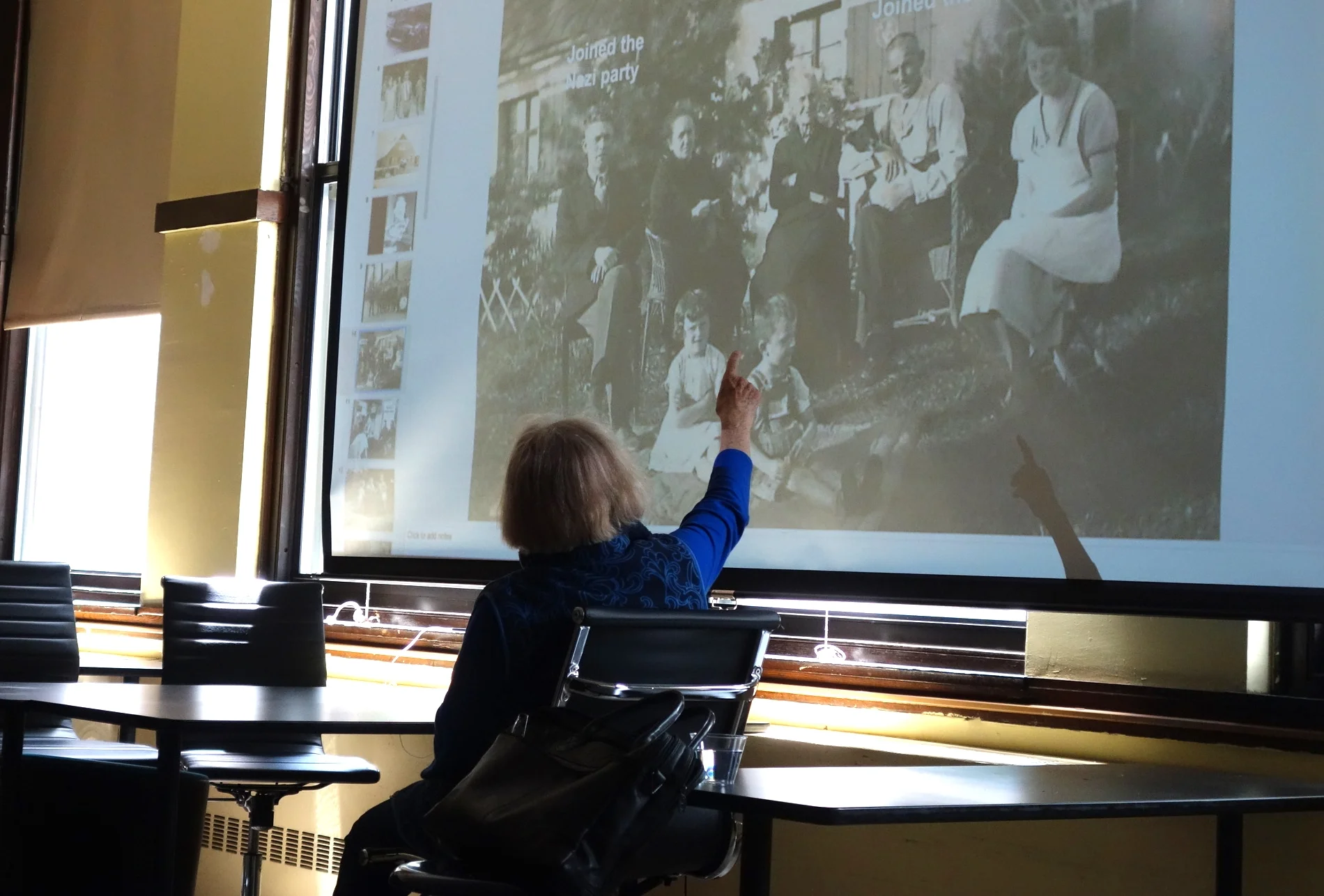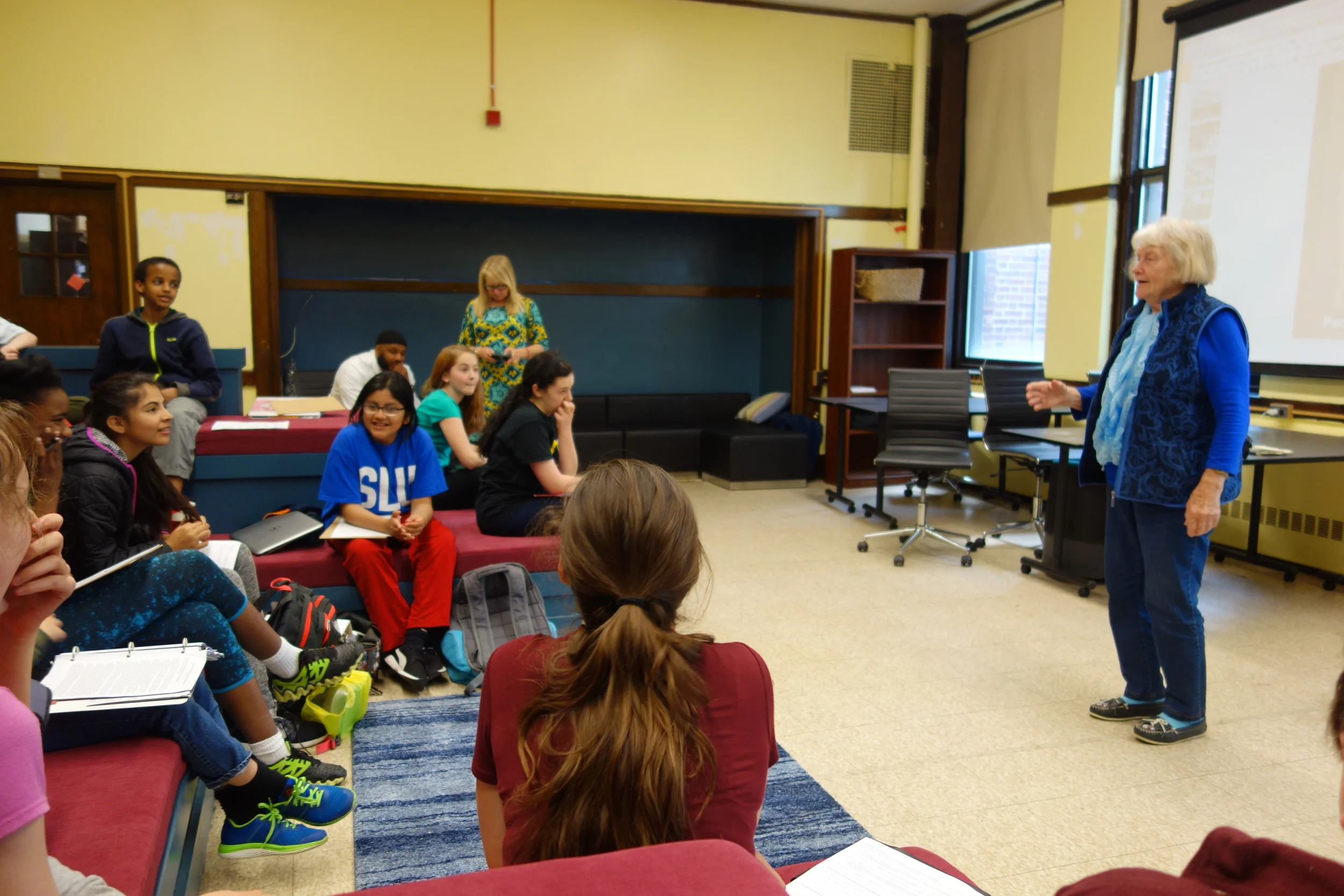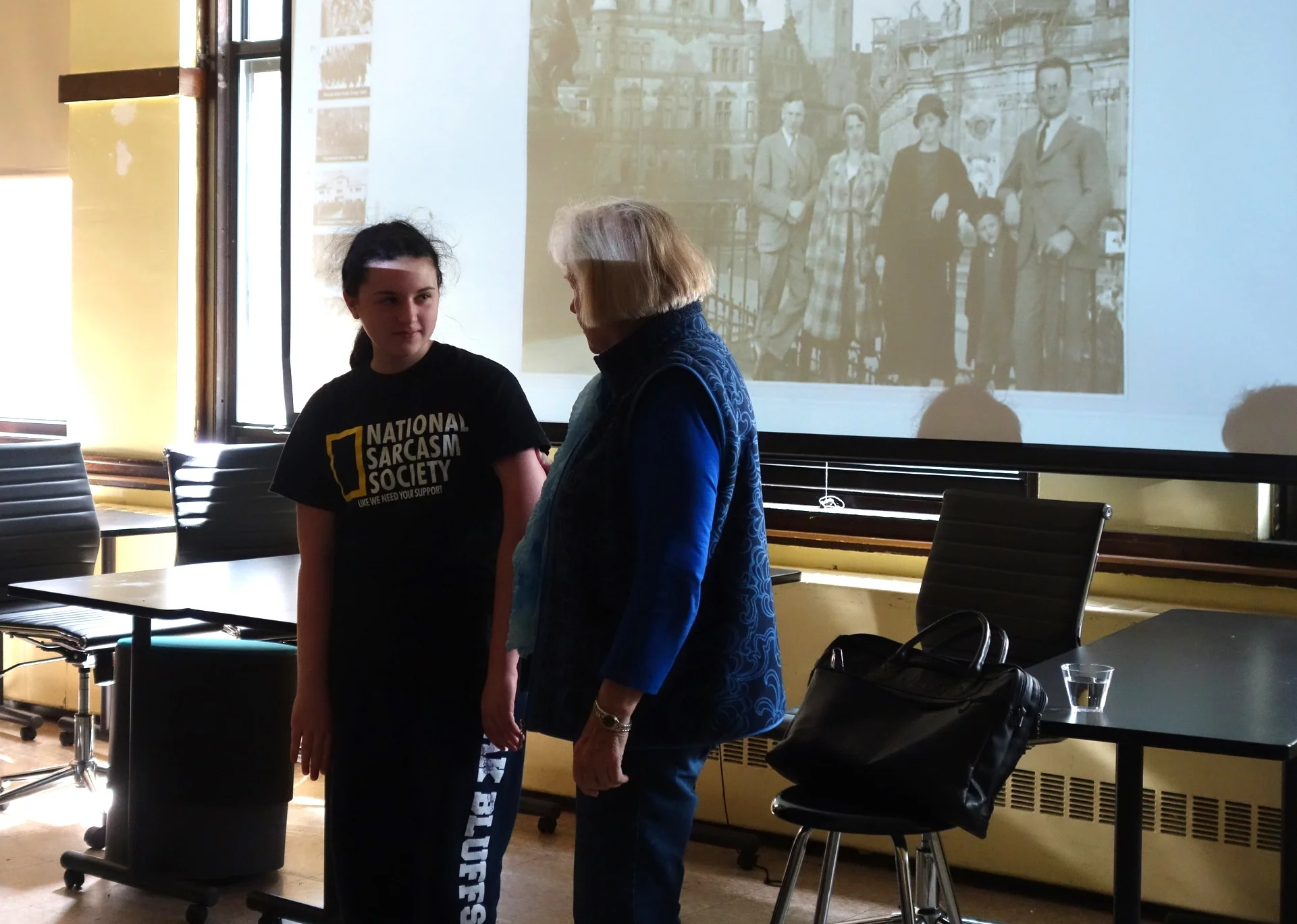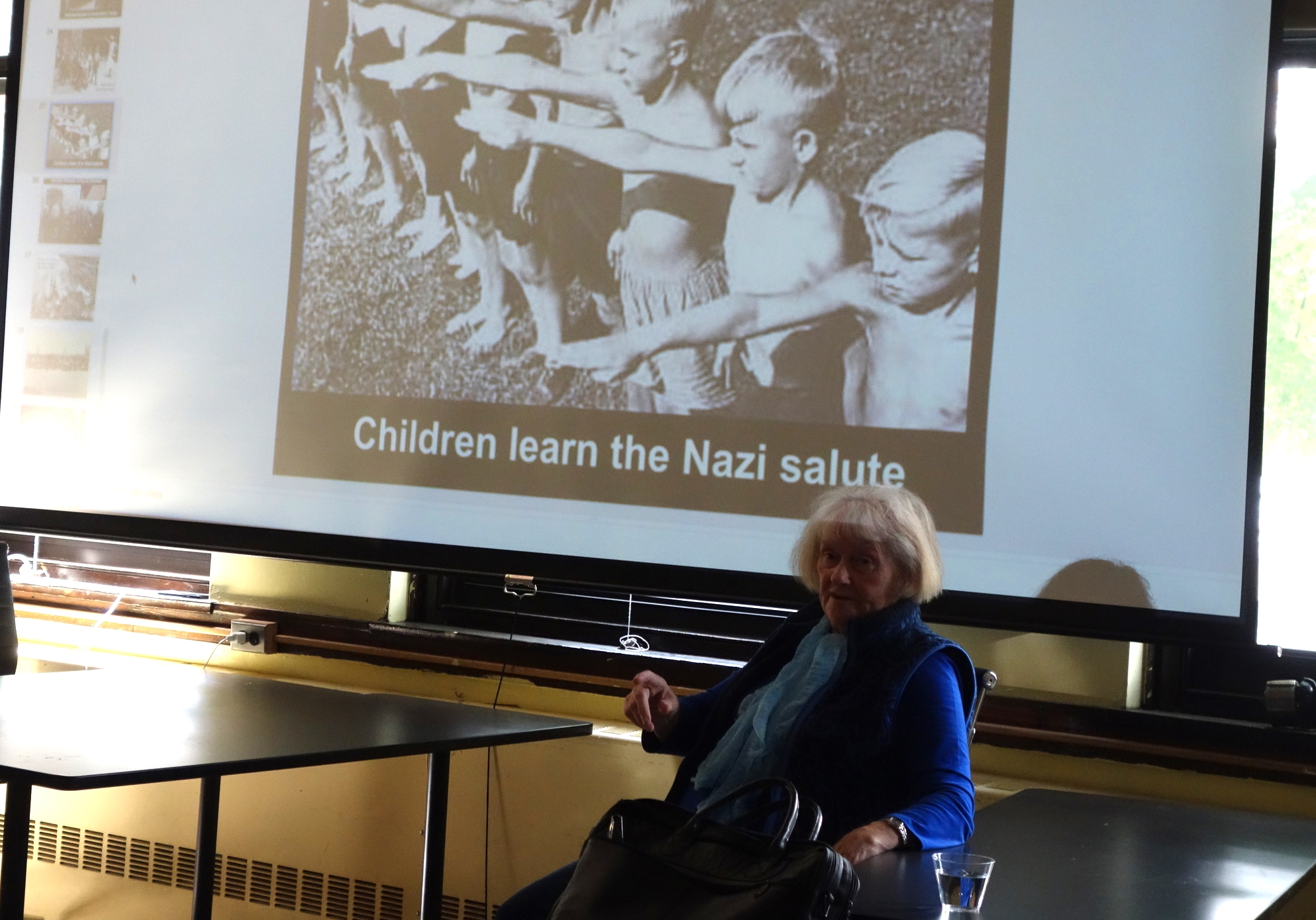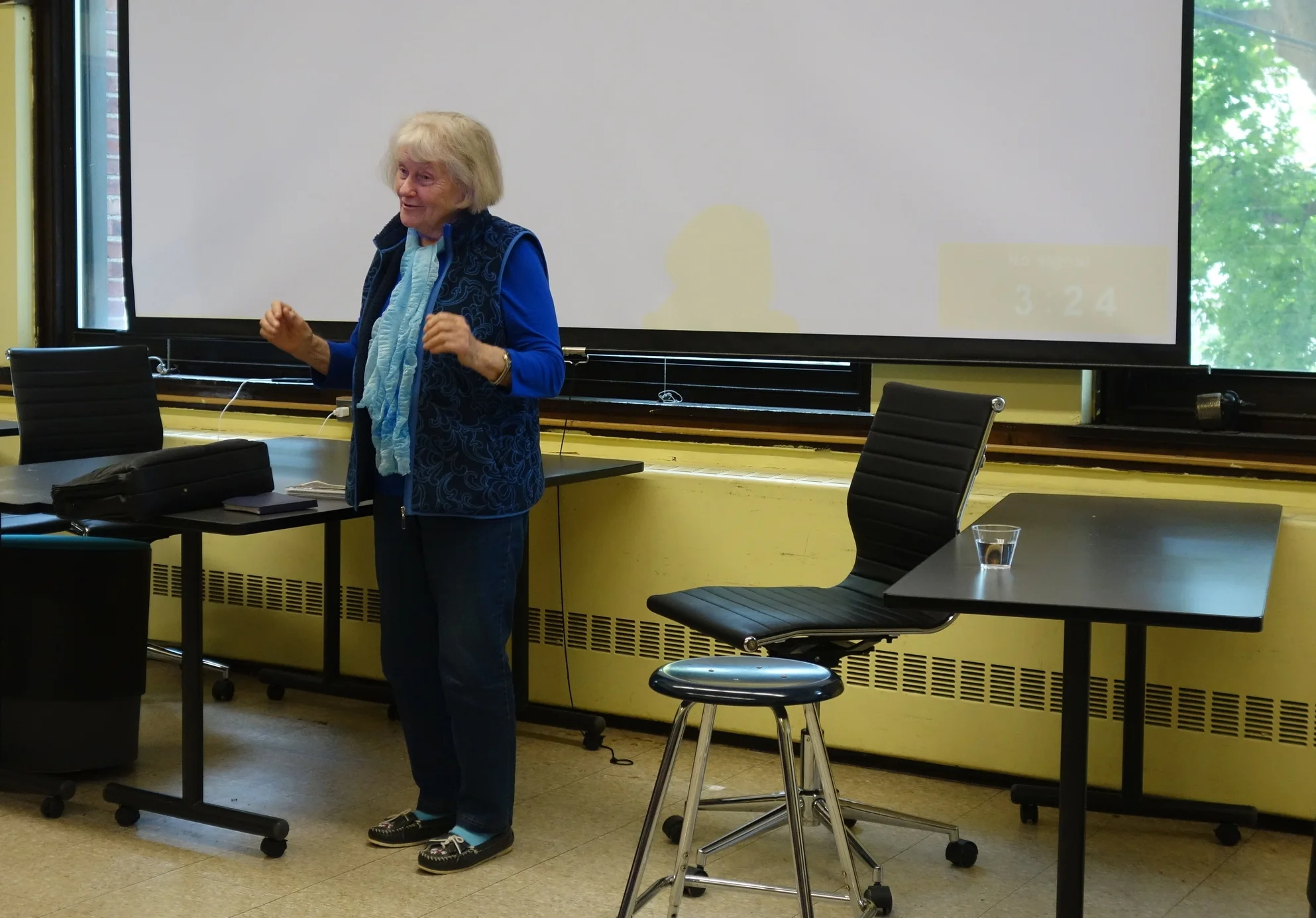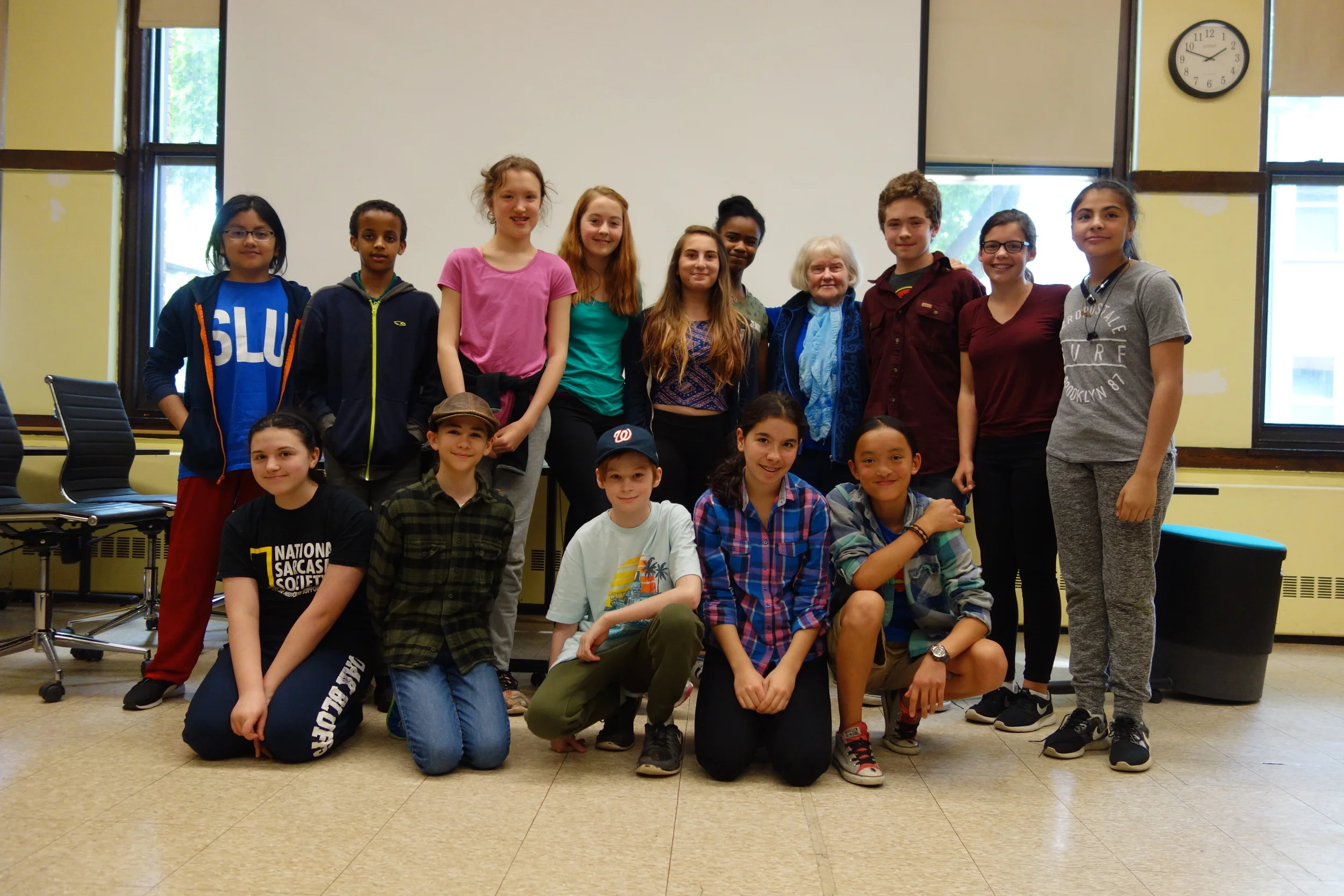Joy After Sorrow: Holocaust Survivor Visits Division 1
By 7th grader Maya
Last week, Holocaust survivor Elizabeth Dopazo visited our Division 1 Humanities class. She talked about how her German family was persecuted for being Jehovah’s Witnesses under Nazi rule. When I heard there was going to be a Holocaust survivor coming to school, I was really excited. To prepare for the visit, we read information about her life. She was a few years younger than many Meridian students when she lived through the Holocaust, so I figured she would have grown up to become a serious person without much joy. Boy, was I wrong…
As soon as Elizabeth started talking, she was not only warm and upbeat, but actually hilarious. I expected that she would simply read from a script or a Power Point. There was a Power Point behind her -- featuring photographs of Elizabeth and her family through the years -- but she didn’t rely on it. She discussed what she cared most about, including horrible situations from her childhood. Her father was taken by the police and killed after he didn’t sign an oath of allegiance to Hitler and the Nazis. Her mother was also put in jail for years. When she talked about hard things, she often seemed to lighten the mood by talking about her good memories of those family members or telling a joke about something else. She acknowledged that sometimes it’s too difficult to hold these experiences in her mind for very long.
About halfway through, Elizabeth asked for a volunteer to come up to the front. I didn’t raise my hand, so I was really surprised when she said my name. I looked up and she said, “I bet you’re wondering how I know your name? I learned it from your teacher when you were a few minutes late.” (It’s true, I was late, but only because I was confused about which room we were supposed to meet in!) Elizabeth led me up to the front of the room and then held me by my arm. I soon realized that she was recreating the experience she had as an outsider in classrooms run by Nazis.
“Now, because you were late, you will be punished,” she said sternly. “Either you can write ‘Punctuality is important’ 100 times, or, because it’s wrong to be left-handed, I can hit your left hand with a ruler. Which do you choose?”
“Uh… I’m right-handed… I think I’ll write it 100 times,” I said.
And then she had me sit down. She looked really serious when I was up there, but I knew she was only trying to make a point -- how alienating it was to be “different” in school when she grew up.
In Elizabeth’s childhood classroom, the students were all made to say “Heil Hitler.” Elizabeth and her brother could not, because as Jehovah’s Witnesses they were not allowed to pledge allegiance to anyone but their God. When they tried to hide the fact that they weren’t saying the pledge, they were continuously worried about being discovered as Jehovah’s Witnesses or getting their family members in trouble.
By the end of the presentation, I had written “Punctuality is important” only 50 times on my paper, but I really understood why it’s used as a punishment. I gave the paper to Elizabeth, and she said that I was the only person who actually gave her a paper after her presentation.
It was really fun to have her visit our class. I feel like I learned a lot, and it was very memorable. Afterwards, the kids in our class couldn’t stop talking about how much they enjoyed it. “I wish she was my grandmother!” they’d say, or, “I didn’t expect to enjoy that so much.” After experiencing something as terrible as the Holocaust, Elizabeth surprised us all with her joy.

